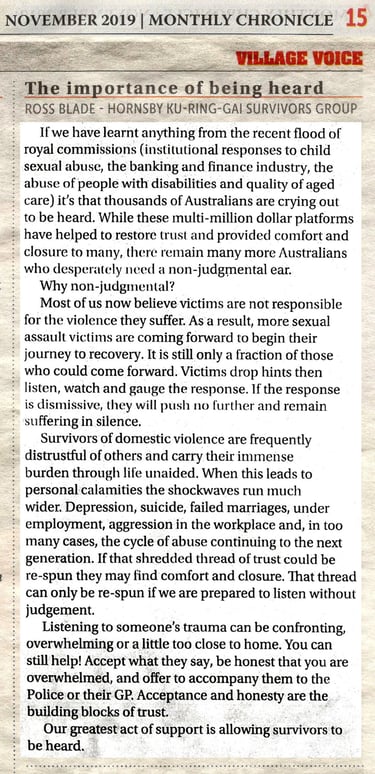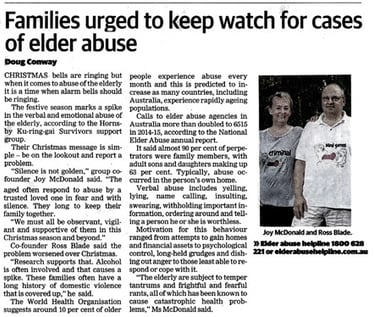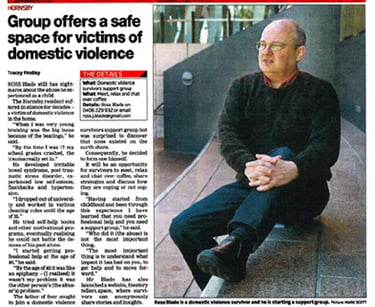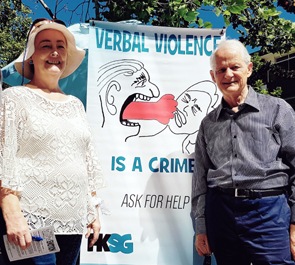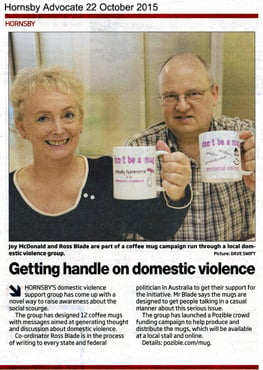Hornsby Ku-Ring-Gai
Survivors Group Inc.
We listen. We believe you.
We provide compassionate, non-judgmental support to people affected by domestic and interpersonal abuse — including emotional, psychological, and verbal harm. Our goal is to help individuals feel heard, understood, and supported as they explore options for safety and healing.
We raise awareness of abuse in all its forms, including elder and religious abuse, and work with community leaders and organisations to improve understanding and response.
HKSG is a registered Australian charity (ABN 54 883 981 332) dedicated to community support and education about abuse.
What We Care About
While Australia has made progress in responding to domestic violence, many forms of abuse remain misunderstood or minimised. HKSG focuses on helping individuals and communities recognise and respond to patterns of harm that are less visible but just as damaging:
Coercive and controlling behaviour — when repeated patterns of behaviour create fear, isolation, and loss of autonomy.
Elder abuse — emotional, financial, and physical harm that happens to older adults, often within families or trusted relationships.
Religious or belief-based abuse — when faith, doctrine, or spiritual authority is used to justify control, silence dissent, enforce submission, or discourage someone from seeking help. This can include pressure to remain in unsafe situations, fear of moral or spiritual punishment, or misuse of religious language to excuse harm.
Long-term impact of abuse — including mental health challenges, economic instability, loss of confidence or agency, and cycles of harm that persist unless recognised and addressed.
What's new
Understanding How Abuse Can Look Different
We are increasingly concerned by the emergence of the online manosphere and the way its ideas are intersecting with forms of Christian nationalist rhetoric. Together, these spaces often promote rigid hierarchies of gender, authority, and worth — framing dominance as moral order and submission as virtue. When such hierarchies are codified through religious language, they can legitimise coercive control, silence those who are harmed, and normalise unequal power in intimate and family relationships. HKSG is monitoring how these narratives move from online communities into real-world beliefs and behaviours, because their impact is already being felt by survivors seeking support.
Abuse doesn’t always look the same. People from all walks of life can experience emotional and psychological harm, whether or not there are other health challenges involved. What matters is how behaviours affect someone’s sense of safety, dignity, and freedom in their life.
We encourage people to focus on what is happening, not labels or conditions.
How HKSG Can Help
We offer:
Supportive listening — over the phone or in person
A safe, non-judgmental space to talk
Practical information and resource referrals
Opportunities for creative expression (writing, art, poetry — if you choose)
.
We do not make decisions for you or pressure you into actions. The choice of how to respond to your situation is always yours.
Support for All Survivors
Everyone can experience abuse — including men, boys, and people of all genders. Barriers such as stigma or lack of awareness can make it harder for some people to seek help. At HKSG, we recognise this and strive to be inclusive in our support and resources.
HKSG may be helpful if you are:
– unsure whether what you’re experiencing is abuse
– seeking a non-judgmental space to talk
– supporting someone else
HKSG is not:
– an emergency service
– a crisis accommodation provider
– a replacement for legal or clinical care
Empowering Survivors
What Helps People Heal
Healing from abuse is not about having all the answers — it’s about reclaiming choice and connection. People often find strength through:
Being listened to without judgment
Feeling safe with trusted support
Connecting with others who understand
Choosing steps forward at their own pace
Support can come from a trusted friend, a counsellor, a GP, law enforcement when needed, or a local support group like ours.
Listening & Peer Support
We offer safe, confidential spaces to talk — in the community, or through peer-led support. No pressure, no labels.
Community Education
We help people understand how abuse works — especially forms that are often minimised or misunderstood, such as coercive control and psychological harm.
Advocacy & Awareness
We work to improve public understanding and responses to abuse, including the long-term impacts on adults and children.
What we do ...
What We Don’t Do
We don’t give legal advice.
We don’t impose plans or actions on anyone.
We don’t replace emergency services or specialised counselling.
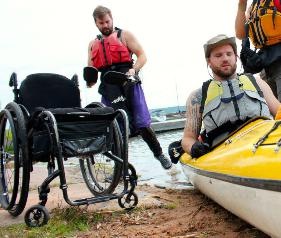

How we fund our activity
Community Participation Support
HKSG offers tailored community participation activities for local participants, including outdoor activities that support wellbeing and connection. We aim to remove barriers — such as cancellation fees — that can stop people from attending.
At this time, some offerings are led by specific facilitators, and group availability may vary.
If you’d like to know more about these programs or how they might support you, contact us.
Get in Touch
If you’d like to talk, ask a question, or learn about support: contact@hksgroup.org
For urgent help: 000 (emergency in Australia) 1800RESPECT – 1800 737 732

